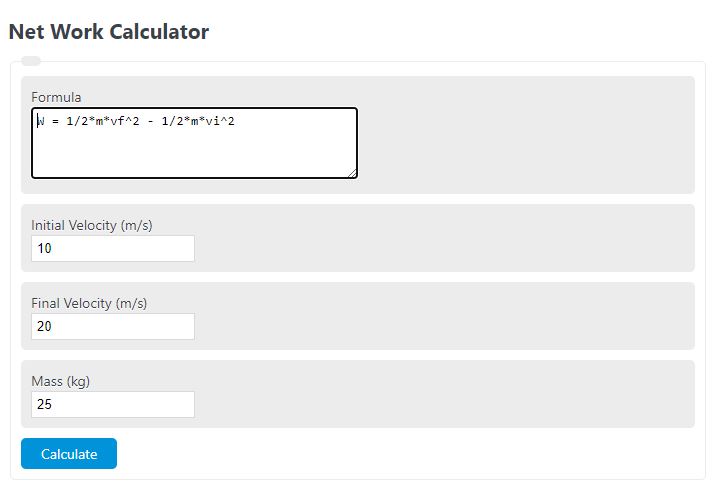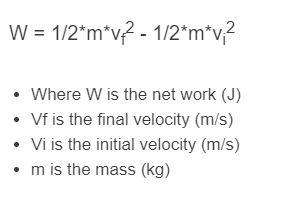Enter the initial velocity, final velocity, and mass of an object into the calculator to determine the net work performed on the object.
- All Physics Work Calculators
- Work Calculator
- Net Force Calculator
- Kinetic Energy Calculator
- Rate of Work Calculator
- Pressure Volume Work Calculator
- Work to Energy Calculator
Net Work Formula
The following formula is used to calculate the net work performed on an object.
W = 1/2*m*vf^2 - 1/2*m*vi^2
- Where W is the net work (J)
- Vf is the final velocity (m/s)
- Vi is the initial velocity (m/s)
- m is the mass (kg)
Different units of measure can be used in this formula and calculator. You must do your own diligence to make sure it is correct if you’re using other units.
Net Work Definition
Net work is defined as the total change in work performed by the forces acting on an object.
Net Work Example
How to calculate net work?
- First, determine the initial velocity.
Analyze and calculate the initial velocity. For this example, we will say this value is 10 m/s.
- Next, determine the final velocity.
Using the same method, we find the final velocity to be 20 m/s.
- Next, measure the mass.
Calculate the mass of the object being analyzed. After using an accurate scale we find this value to be 25 kg.
- Finally, calculate the net work.
Using the formula we find the net work to be 3750 J.
FAQ
Net work is the total work of all forces acting on an object. The formula above is used when an object is accelerated in a 1-dimensional direction. For example, along the x or y-axis.

